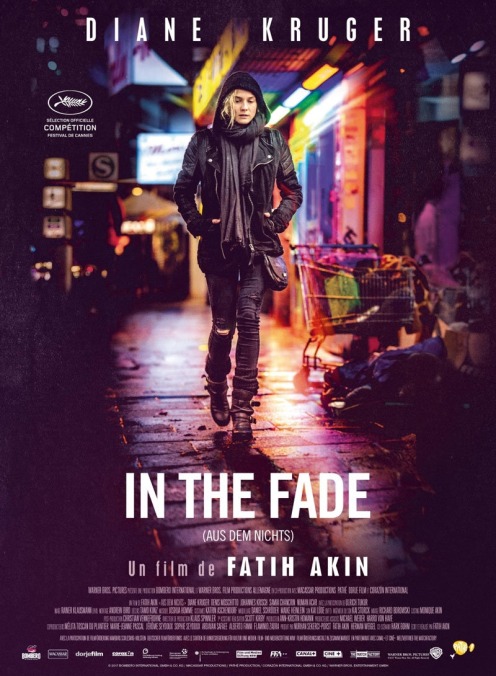Even Diane Kruger going after Nazis can't save the blunt courtroom drama In The Fade

If 2017 has an official spokesman, it’s Indiana Jones in Last Crusade, muttering, “Nazis. I hate these guys.” It’s fitting, then, that the final movie opening theatrically this year features a pair of smirking neo-Nazis as villains. Set in present-day Hamburg, In The Fade stars Diane Kruger (in a rare German-language role—the first since 2009’s Inglourious Basterds) as Katja, who’s seen at the outset marrying a Kurdish prisoner, Nuri (Numan Acar), right there in the jail. The movie then leaps forward six years to find Katja and Nuri still happily married, with an adorable son (Rafael Santana), jointly running a legitimate business. Rehabilitation is possible, it’s clear. But so is senseless retaliation: One evening, Katja returns from a trip to the spa to discover their office reduced to rubble by a homemade nail bomb. Both Nuri and her son are dead, and the police initially seem more interested in Nuri’s criminal past (he’d been a drug dealer) than in the possibility that the bombing may have been a hate crime.
Fortunately, Katja remembers seeing a woman leave a bicycle outside the office, and can provide a description. Two suspects are soon apprehended, and In The Fade abruptly turns into a conventional courtroom drama, as the sleazy-looking defense lawyer (Johannes Krisch, from Revanche) works to save his clearly guilty clients by casting aspersions on the victims, Katja included. Though familiar, this middle stretch of the movie works reasonably well, thanks in large part to its deliberately maddening conception of the terrorists (played by Hanna Hilsdorf and Ulrich Brandhoff). Whether on the stand or at the defense table, both of them radiate a smug certainty that they’ll get away scot-free, never even really trying to create the impression of being innocent. The fiery, righteous monologues delivered by the prosecuting attorney (Denis Moschitto) only seem to amplify their grotesque conviction that they’re in the right and will be exonerated because the justices (there’s no jury) secretly feel the same hatred toward foreigners. Katja can only observe in horror, and Kruger digs deep into this devastated woman’s raw emotions.
It’s after the verdict is handed down that In The Fade goes off the rails. Director Fatih Akin, who co-wrote the screenplay with veteran actor (and Fassbinder regular) Hark Bohm, has never been one for subtlety. His two best films, Head-On (2004) and Soul Kitchen (2009), are both raucous, music-driven affairs (punk and R&B, respectively); even 2007’s comparatively restrained The Edge Of Heaven pivots on absurd coincidences. When he tried his hand at solemn historical drama with The Cut (2014), the result was less than stellar. To his credit, Akin seems to have recognized this, but he’s chosen to course-correct by steering In The Fade toward risible nonsense in the home stretch. The film’s third act plays like a nihilistic Liam Neeson thriller, with Kruger struggling in vain to make Katja’s actions remotely believable. On the other hand, what happens will surely be cathartic for those who couldn’t stop watching the GIF of Richard Spencer getting punched in the face. As this exhausting year draws to a close, maybe that’s what we need.